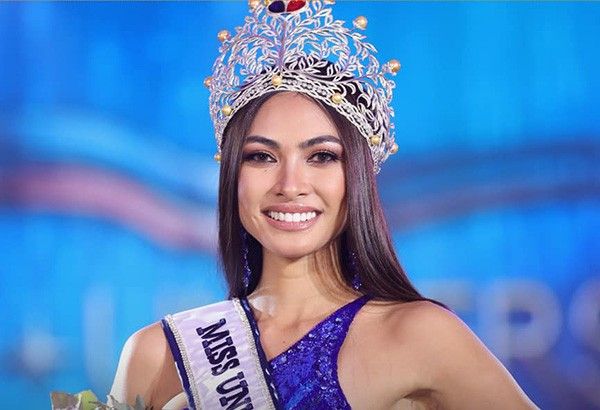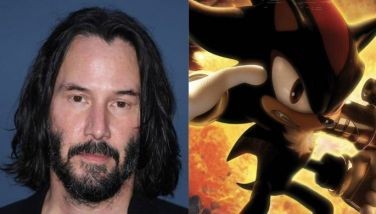Miss Universe Philippines and the 'politics of language' in beauty pageants

MANILA, Philippines — In the book "Figures of Southeast Asian Modernity" published by the University of Hawai’i (2014) and edited by J. Barker, E. Harms and J. Lindquist, I contributed an essay on the politics of language in the Philippines based on the experience of Janina San Miguel, a beauty contestant at a Bb. Pilipinas competition.
During the interview segment, Janina struggled to answer the question in English, prompting one politician in Congress to say that the interview was “painful” to watch. Janina was a daughter of a jeepney driver and a laundry woman, but this aspect of her identity was unrecognized in the backlash against her. But the reality is that every time we speak, language intersects with all the other aspects of everyday life, such as social class.
As in most parts of the world, the English language has symbolic power. In the Philippines, English is considered a language that may represent one's social status, and even intelligence. Anyone who speaks it fluently is supposedly a credible speaker. It will also open doors to ‘success’.
However, not everyone in the country who wishes to learn the language has access to good education. Someone who speaks English does not automatically enjoy good opportunities. This is because of the phenomenon of 'unequal Englishes'.
Not everyone’s use of English is deemed ‘acceptable’. For some, the desire to speak in English actually puts them at risk of being "disadvantaged" by the English language. In my essay, I reflected on Janina’s choice to answer in English despite struggling with it: “She chooses to speak in English, a choice she is not privileged to make; and as she attempts to speak in an English reflective of her marginalized social positioning, she reaffirms the power of English to disempower her.”
Sabrinah Billings of the University of Arkansas argues that language practices and ideologies, which are privileged in schools, “reappear on the pageant stage.” She has done work on multilingualism and beauty pageants in Tanzania. This means that beauty pageants produce language hierarchies in society, thus contributing further to the marginalization and silencing of ‘local’ languages, including the so-called ‘non-standard’ accents.
The Miss Universe Philippines pageant was last staged online in Baguio City under strict health guidelines. This most recent edition of one the country’s foremost beauty competitions allowed and endorsed the use of any Philippine language, including English, in interviews. Although Filipino contestants and representatives for the past years have individually argued that English need not be the default language of the competition, most have stopped short of endorsing the use of Philippine languages.
In the past year’s pageant, it was clear that the discourse was welcoming of Philippine languages, with candidates far more confident, unafraid and persuasive in articulating their stand on the relevance and legitimacy of local languages.
Thus, the new management of the Miss Universe Philippines, headed by its National Director Shamcee Supsup-Lee, Creative Director Jonas Gaffud, and all others involved, must be commended for such an enlightened and potentially transformative policy. During the finals night, however, all but Miss Davao spoke in English. In Philippine sociolinguistics, the use of English in this kind of a situation is described as unmarked.
Every time we talk, there are always expectations of how the talk is going to be like. This includes what language is going to be used. When participants in a conversation use the unmarked code for that conversation, there are usually no surprises. Except when the surprise comes from the content of the talk or from other distractions.
Things become different if a marked form of communication is used. This happens, for example, if one participant in the conversation uses a different code or language than what is expected of the situation.
In the case of Miss Davao, she was asked a question in English but she answered in Bisaya, one of the many Philippine dialects. English would have been the default, unmarked language. Bisaya or any other language was the marked one. In ordinary conversations the use of marked forms of communication requires some time for speakers to process what has happened, and figure out how to respond to it.
Watching the interview unfold, the response in Bisaya was unexpected. When the question was asked, there was no prior notice that she would do so (at least from the point-of-view of the audience online), thus leaving everyone no time to figure out what had just happened.
Given the enlightened position of the new Miss Universe Philippines franchise, what is needed in future runs of the competition is for more and broader communicative infrastructures to be put in place. This is not only in order to legitimize the use of Philippine languages, but also to make their use more desirable and more positively received.
Such infrastructures include letting the host or the candidate early on signal or declare that a different language will be used. If this is done, there is no urgent need to allow time for participants in the conversation (including the judges and the people watching on TV) to process what has happened and figure out what to do with it.
The use of an interpreter is also a must, not only for the sake of the judges, but also for the sake of the audience. The greater question, of course, is why such intervention is necessary in the first place. This is because inequalities of multilingualism ‘reappear on the pageant stage.’
The use of English is understandable because it is convertible to economic and cultural capital. If you use it well, you are ‘smart’ or ‘educated’. Most contestants chose to use English because either they were most comfortable speaking in the language due to family and school background, or they felt the only choice was to speak in English in order to win.
Either way, it was not a purely individual decision. Society and its history dictated their choice of English. Commentors in Philippine pageants refer to the use of languages other than English as a positive thing, yet they refer to Philippine languages as ‘dialects’. Only the English language has the status of being called a ‘language’. We inherited this mindset from colonialism, when Filipinos were taught that the languages they spoke were not as good as Spanish or English. Thus, when we refer to our local languages as ‘dialects’, we continue the centuries-old view of our languages as inferior. In fact, we continue to view speakers of our local languages as of less value than speakers of English. We continue to view music and literature in our local languages as of less value than music and literature in English.
What the Miss Universe Philippine organization has done is undoubtedly a necessary and significant step towards raising awareness of the plight of our Philippine languages. With its focus on advocacies and community development, this was not a surprising move.
Looking forward, we should look at the politics of language in beauty pageants with a broader view. Raising awareness of the status of our more than 100 Philippine languages is putting the spotlight on the conditions and lives of the speakers of these languages. Just like the minoritized status of the languages, the speakers too experience all sorts of marginalization.
This does not in any way mean that English should be forgotten or ignored. It means our Philippine languages and their speakers should not be forgotten or ignored. In all advocacies put forward by the phenomenal women of the pageant, there is always a linguistic story to it.
Those whose communities and people we aim to help because they experience different forms of marginalization are most likely speakers of languages we have long forgotten or ignored.
RELATED: Pandemic pampering: 2022 hairstyle trends from Miss Universe Philippines trainer
- Latest
- Trending



























